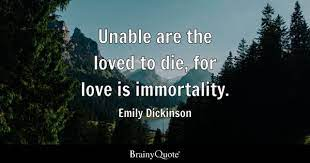"The Immortality of the
Soul: A Journey Through Time and Philosophy"
The
idea that the soul continues to exist after the death of the physical body has
captivated humanity for thousands of years, cutting across all religions and
philosophies. Despite the efforts of great thinkers and even scientists, the
question of the soul remains unsolved. Regardless of our profession, we are
constantly faced with the question of the soul and its fate. The ancient text
of the Bhagavad-Gita states that the soul is indestructible and eternal, and
that the destruction of the physical body does not affect the subtle body made
up of the mind, intelligence, and ego. This subtle body continues to exist,
carrying with it the experiences of mortal life. The question remains: what
happens to the soul after death and how do we exist?
In conclusion, the question of the soul and its continued existence after death has been a subject of intense interest and speculation for centuries. The idea that the soul is immortal and indestructible is central to many religions and philosophies, and even physical science has attempted to solve the question on a scientific basis. Despite the efforts of great minds, the answer remains elusive. The idea of the soul is one that we cannot ignore, as it constantly presents itself in our daily lives, regardless of our profession or background. The Indo-Aryan concept states that the destruction of the physical body does not affect the subtle body made up of the mind, intelligence, and ego, which continues to exist and carry with it the experiences of mortal life. Ultimately, the question of what happens to the soul after death and how we exist remains a mystery that continues to captivate the human mind.
"Breaking
Free from the Chains of Limited Thinking: The Power of Empowerment"
In an elephant camp, a man noticed that the elephants were not kept in cages or restrained with chains, only a small rope tied to their leg. He was puzzled as to why they didn't break free with their strength and asked the trainer. The trainer explained that the elephants were conditioned to believe they couldn't break away since they were young and tied with the same size rope.
This
concept applies to our own lives. Believing in our own abilities and having a
sense of self-worth is crucial in achieving success. Power within, which refers
to our inner strength and self-knowledge, allows us to recognize our abilities
and make a difference. Power to, on the other hand, refers to the productive
and generative potential of power, creating new possibilities and actions.
But
power is often understood as power over, which is built on force, domination,
and control, motivated by fear. This kind of power is limited and held by
individuals, with some having power and others not. In contrast, power with is
a shared power built on collaboration and relationships, respecting differences
and supporting one another.
Gandhi
believed that power based on love is much more permanent and effective than
power derived from fear. Psychologist Adam Blanch suggests that when
threatened, people try to have power over others through violence, whether
physically or psychologically, because they are afraid. Empowerment comes from
building confidence and eliminating barriers to exclusion and powerlessness,
leading to individual discovery and change. The kind of power we exercise
determines whether it results in domination or collaboration for the benefit of
all.
IF
HE EXIST
I drive joy there was a doctor in Benaras who
spent 7 minutes in the morning and evening for mediation on God. Knowing this,
his colleagues and friends laughed at him. One day they argued that he was
wasting 7 precious minutes on something, which he had been misled into
believing. The doctor replied, “Well, if God does not exist, I agree that I am
wasting 7 minutes a day. But, if He exists? I am afraid you are wasting your
entire lifetime. I prefer to waste 7 minutes rather than a lifetime. Why should
you grudge me the 7minutes joy that I derive 4m.-
ILLUSTRATED REVIEW : 7th heaven moment of the
week s.gill no 77 score a century








No comments:
Post a Comment